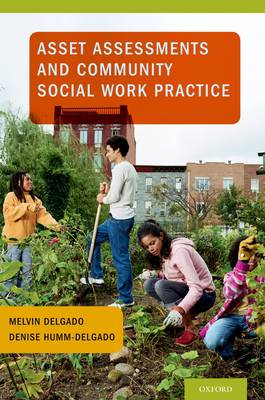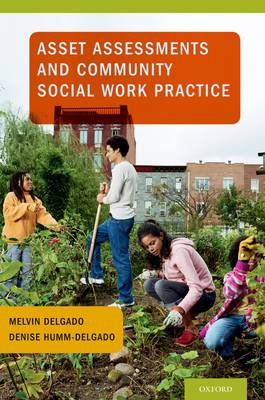
- Afhalen na 1 uur in een winkel met voorraad
- Gratis thuislevering in België vanaf € 30
- Ruim aanbod met 7 miljoen producten
- Afhalen na 1 uur in een winkel met voorraad
- Gratis thuislevering in België vanaf € 30
- Ruim aanbod met 7 miljoen producten
Zoeken
Asset Assessments and Community Social Work Practice
Melvin Delgado, Denise Humm-Delgado
Hardcover | Engels
€ 72,95
+ 145 punten
Omschrijving
The role and importance of assessment in development of health and social services are well accepted in the field, and represent the fundamental building blocks for the creation of any form of social intervention. Need assessments are, without question, the most common form of assessment in these fields. They typically, however, result in a rather narrow view of a community that stresses disease risk profiles and lists of various social problem categories. Nevertheless, unlike needs assessments, asset assessments bring a range of factors and considerations to the creation of an intervention that are guided by participatory democratic principles and processes. Although need assessments can also be guided by participatory principles, they generally are professionally-driven and do not stress capacity enhancement in the process. Asset assessments' emphasis on participatory democracy sufficiently distance themselves from their needs counterpart through the use of values, language
used to communicate, and how research methods get conceptualized and carried out. Community asset assessments can be viewed as a goal; a strategy; a set of guiding principles; a method; and a process. These different perspectives make a consensus definition of a capital difficult to arrive at in both scholarly and practice realms. Consequently, it is best to view asset assessments from an evolutionary point of view in order to appreciate the variety of perspectives, tensions, and potential for achieving positive social change. In essence asset assessments are both an instrument of discovery as well as an intervention to achieve community change.
used to communicate, and how research methods get conceptualized and carried out. Community asset assessments can be viewed as a goal; a strategy; a set of guiding principles; a method; and a process. These different perspectives make a consensus definition of a capital difficult to arrive at in both scholarly and practice realms. Consequently, it is best to view asset assessments from an evolutionary point of view in order to appreciate the variety of perspectives, tensions, and potential for achieving positive social change. In essence asset assessments are both an instrument of discovery as well as an intervention to achieve community change.
Specificaties
Betrokkenen
- Auteur(s):
- Uitgeverij:
Inhoud
- Aantal bladzijden:
- 320
- Taal:
- Engels
Eigenschappen
- Productcode (EAN):
- 9780199735846
- Verschijningsdatum:
- 18/01/2013
- Uitvoering:
- Hardcover
- Formaat:
- Ongenaaid / garenloos gebonden
- Afmetingen:
- 236 mm x 160 mm
- Gewicht:
- 566 g

Alleen bij Standaard Boekhandel
+ 145 punten op je klantenkaart van Standaard Boekhandel
Beoordelingen
We publiceren alleen reviews die voldoen aan de voorwaarden voor reviews. Bekijk onze voorwaarden voor reviews.











